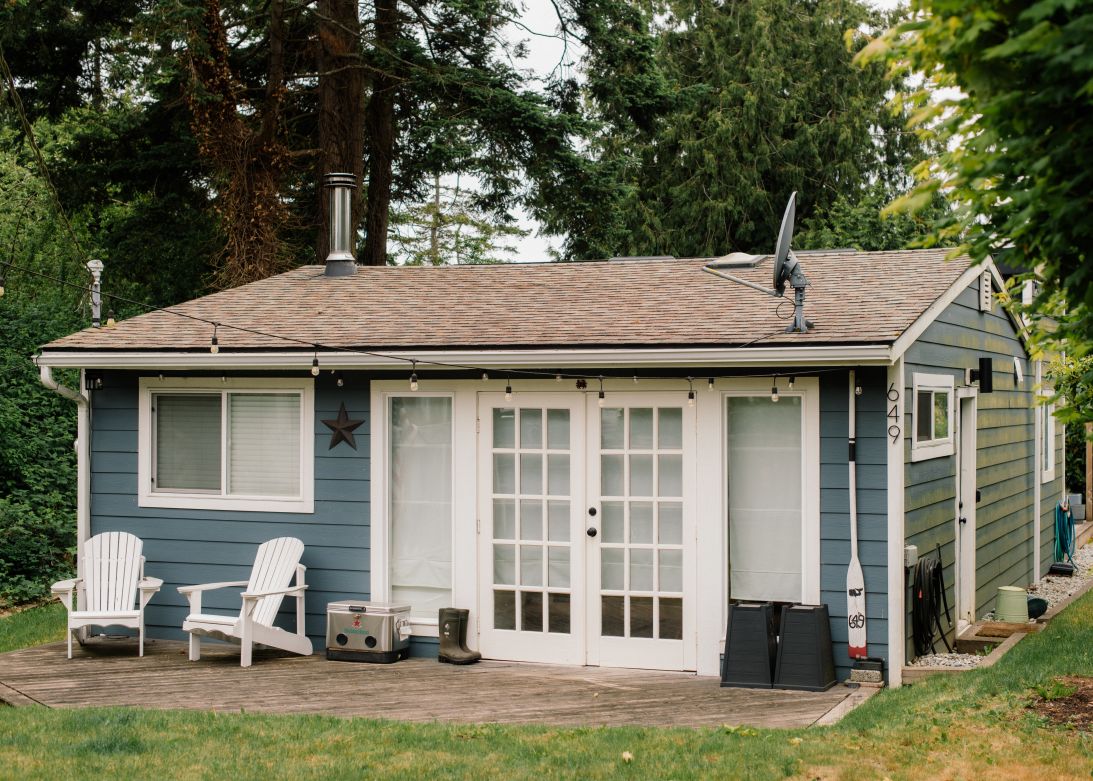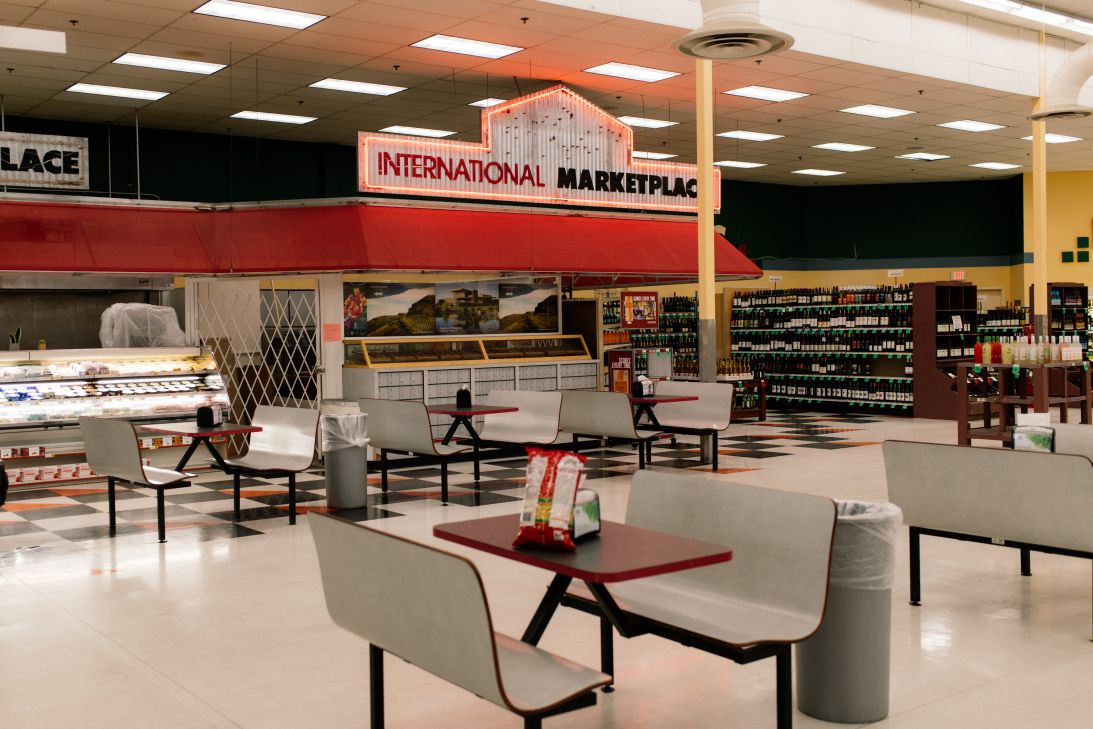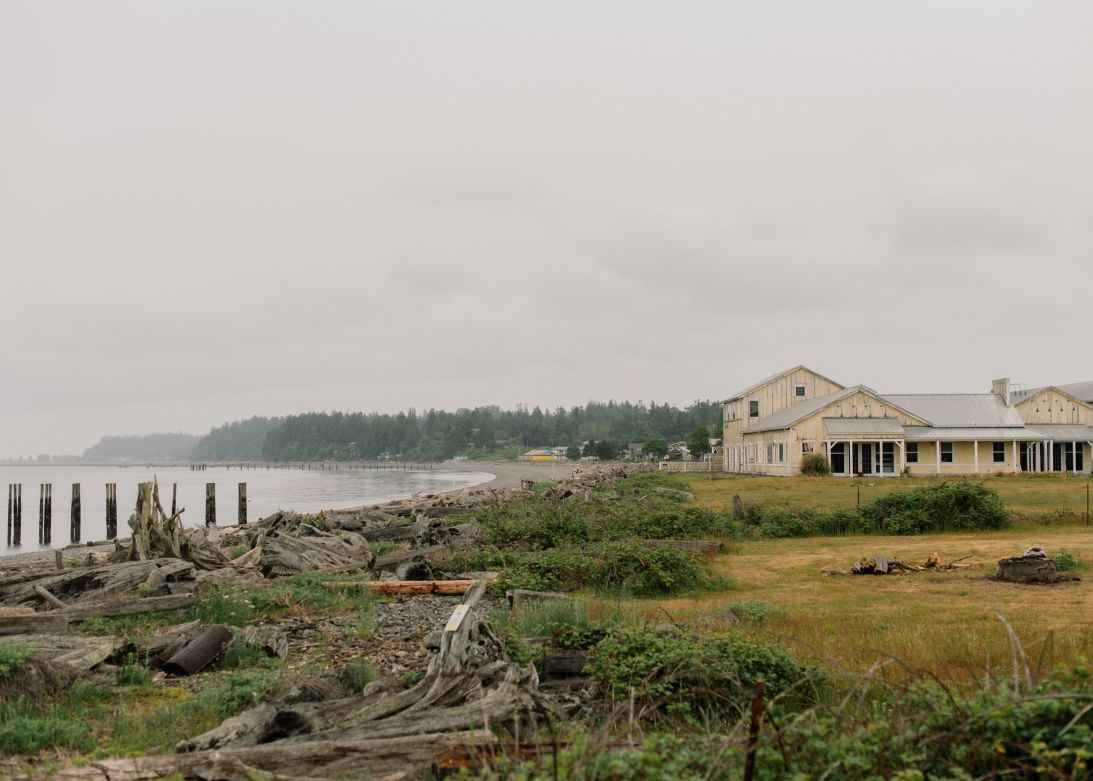Brian Calder’s life and family have always straddled the 49th Parallel — the line on the map that divides much of the United States from Canada. A dual citizen, he was born in Vancouver, British Columbia, and has lived most of his 84 years a few miles south in Point Roberts, Washington.
The fact that Point Roberts dangles off the edge of British Columbia, relies almost entirely on Canada for its utilities and has no land connection to the rest of the US has largely not been an issue, until now.
“Half our families are on either side of the border and so we have a very strong — probably the strongest of any place in North America —bond between Canada and the USA,” Calder said.
“That’s grossly threatened now by the disowning (of) Canada economically, and therefore emotionally, and it’s soul-crushing,” he said.
Tariffs, reports of detentions and President Donald Trump’s repeated calls for annexing Canada as the 51st state are driving a wedge between the nations, and even relatives.
Calder’s family has been in Point Roberts for generations, first arriving in 1895, he explained.
The economy of the town relies largely on traffic coming in from Canada, which includes the roughly 40 family members he estimated being on the Canadian side.
But the once sure-footed dynamic has given way to some second guessing their relationship with the American exclave, even for family.
“They just feel more alienated from here because of what’s happening,” Calder said from the American side of the international line.
“It’s all driven, in my opinion, by the threat on the Canadian sovereignty,” he told CNN. If it had been the Canadian prime minister talking about absorbing the US, “there’d be tanks on the border within an hour,” he added.
He questioned if Trump’s tactics were helping anyone. “Both economies get negatively impacted – people are now mad at each other because of that goofy statement.”
Bill Calder, his cousin, is one of those people. He lives in Tsawwassen, British Columbia, just a five-minute drive from the border and Point Roberts.
The 85-year-old Canadian was also born in Vancouver and remembers spending “every summer in Point Roberts.” Up until recently he would go down once or twice a week, sometimes just for leisurely visits if the weather was nice.
Now, he “would rather not.”
Generations of history in Point Roberts are up against months of a new Trump administration.
“I’m not too happy about Mr. Trump,” he told CNN. “The interest is not there to go down right now.”
“It’s too bad, it’s sad,” he continued. “It used to be a wonderful place to go, it just doesn’t seem to be as nice anymore” he said of the neighboring US town, adding his feelings had “something to do with Mr. Trump being charge of it.”
“It’s him,” he emphasized.
Bill Calder’s Canadian daughter fondly remembers spending summers in Point Roberts, and while she hasn’t cut herself off from visiting, there is still “quite a bit of hesitation to go down,” said Maggie Mori.
The 50-year-old Mori lives in the Vancouver-area but owns a summer home in Point Roberts with her husband, where she’s continued the generational tradition of bringing their kids to the Point.
She’s aware of the general animosity in Canada toward some of Trump’s rhetoric. But her hesitation is more to do with her personal safety. “There is some fear there still about being detained at the border,” she said, adding it is “nerve-wracking.”
“I’d like to think Point Roberts is different, but it’s not. It’s still part of the United States,” she said, alluding to other incidents of tourists being detained at US borders.
“It’s difficult to feel like that about Point Roberts,” she explained. “For me, personally, it’s just somewhere I love,” but even still, “I am angry at America.”
The Canadian government recently warned Canadians to “expect scrutiny” when crossing the border and said US border officials have the authority to search travelers’ electronic devices – including phones, laptops, and tablets – without providing a reason.
That said, the Canadian government still rates the risk of travel to the United States as low and to take normal security precautions.

The change in attitude has also had a real effect on business in a town where 70% of homes are owned by Canadians, as long-time real estate agent Hugh Wilson explained.
“It’s the day trippers that aren’t coming down here,” he told CNN.
“It’s a lot quieter during the week,” he added, “that’s what’s affecting the retail businesses.”
Brian Calder, also former president of Point Roberts’ chamber of commerce, estimated foot traffic has shrunk “right down to probably 70% of what it was.”
Border crossing data reflects much of that reality.
In the months leading up to Trump’s inauguration, traveler crossings were up at the Point Roberts point of entry as compared to the same time period the previous year.

But in February there was a roughly 13% drop compared with February 2024.
March then saw a 25% drop and April continued the spiral with a nearly 30% decrease in travelers compared to the same month last year, according to data from United States Customs and Border Protection, in line with the 25% year over year drop in crossings along the length of the US-Canada border in April.
Dave Duncan, the manager at the town’s only grocery store, told CNN in early April he estimated sales were down about 20% or 30% while Tamra Hansen, manager at the nearby Saltwater Café told CNN affiliate KOMO her sales were down 55% in February.
Her café proudly declares “Point Roberts residents support Canada.”
For Wilson, the real estate agent, the future is still unknowable. “This summer will definitely be the best indication,” he said, as to what the long-term effect may be for this town that relies on Canadian traffic to keep it alive.
The only other time community members recall anything like the same disruption was during the Covid-19 pandemic, when the border was essentially shut down at points.
But Mori draws a crucial distinction from that time.
“Covid was out of our control,” she explained. “This is within somebody’s control.”
“Everything can be amicable again, so it’s really hard to reconcile why this is happening,” she continued.
Trump’s heightened rhetoric is widely credited with giving rise to Canada’s newest Prime Minister Mark Carney. Mori was encouraged by Carney’s first meeting with Trump in early May.
“It seems like the last meeting between Trump and our prime minister went OK,” she said. But Carney has also previously said, “The old relationship we had with the United States based on deepening integration of our economies and tight security and military cooperation is over.”

Since Carney’s meeting with Trump, he has unveiled a new cabinet “with a strong mandate to define a new economic and security relationship with the United States,” his office said in a statement.
But what will it take to bring people like Bill Calder back to his usual visits from Canada to the US?
“I don’t know, we’ll just have to wait and see what happens,” Calder told CNN. He still plans to go for his kids this summer but he definitely “won’t stay down there.”
Down there, his cousin Brian told CNN he was feeling the absences on a personal level. “It’s very emotional,” he said.
“This is unnecessary,” he said of the new politically driven wedge between his two countries.
“There are no winners here, none. This is being run like a bad movie. I can’t believe it.”







